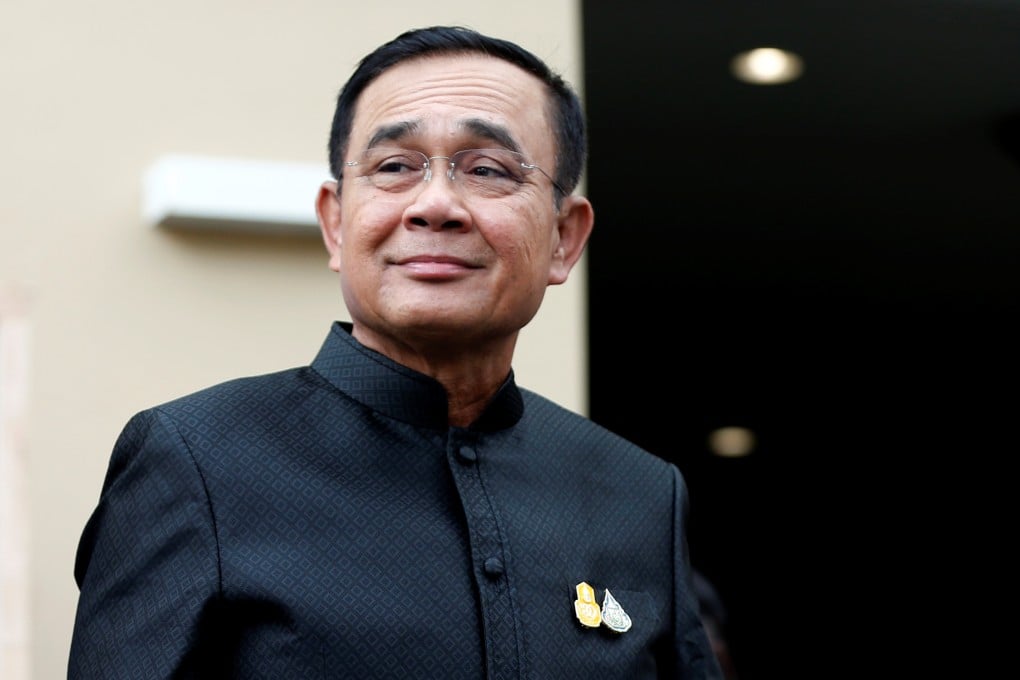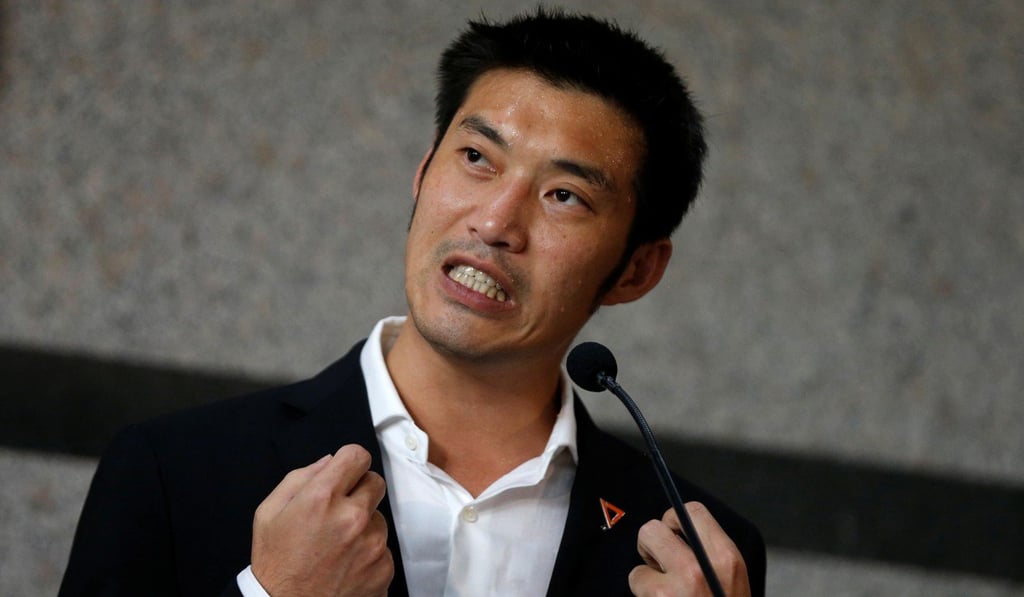Thai parliament votes to confirm junta leader Prayuth Chan-ocha as prime minister
- Final tally stands at 500 for Prayuth and 244 for his sole rival, Thanathorn Juangroongruangkit, with three abstaining
- Vote ensures Prayuth’s transition from leader of the 2014 coup and the ruling junta to a prime minister endorsed by an elected parliament

Thailand’s parliament has confirmed junta leader Prayuth Chan-ocha as prime minister two months after the country’s disputed general election in March.
More than an hour after voting began, Prayuth acquired 376 votes, which is a majority in the 750-seat lower and upper houses. The confirmation came about 12 hours after the Thai parliament convened on Wednesday morning.
The final tally stood at 500 for Prayuth and 244 for his sole rival, Thanathorn Juangroongruangkit, with three abstaining. A total of 747 house members from the 250-seat senate and 500-seat parliament attended.
Thanathorn was not present for the vote. The leader of the Future Forward party is currently barred from performing the duties of an MP by the Constitutional Court pending the case involving his stake in a media company.

Former Democrat party leader Abhisit Vejjajiva also failed to attend. Abhisit resigned shortly before parliament convened on Wednesday morning in protest of the party’s alliance with the pro-Prayuth Palang Pracharat.